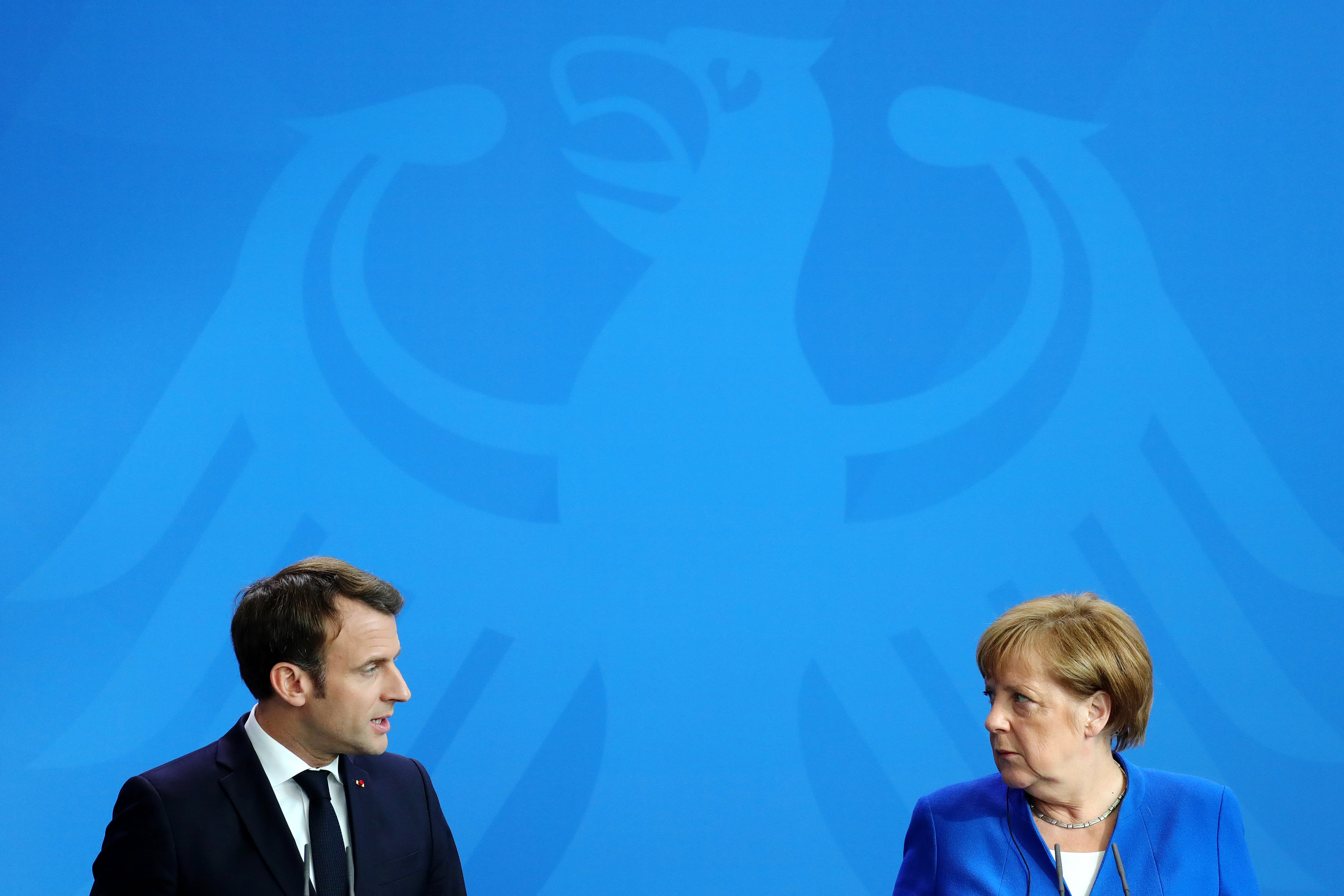
Emmanuel Macron, France’s president, left, speaks beside Angela Merkel, Germany’s chancellor.
Bloomberg | Bloomberg | Getty Images
U.S. tech firms could face new challenges in Europe amid a growing debate about data privacy and security.
Some European leaders across the 28-member bloc are voicing concerns about the reliance on American and Chinese tech companies for storing data. Chancellor Angela Merkel of Germany said last week that many European companies have outsourced their data to U.S. firms. As a result, she argued that Europe should claim “digital sovereignty” by developing its own data platform and thus reducing the dependence on companies such as Google and Microsoft for their cloud services.
In France, President Emmanuel Macron has expressed similar worries. He told The Economist last month that if nothing changes in Europe “in 10 years’ time, no one will be able to guarantee the technological soundness of your cyber-systems, no one will be able to guarantee who processes the data, and how, of citizens or companies”.
Digital sovereignty encompasses the idea that users, being citizens or companies, have control over their data. According to Andrea Renda, senior fellow at the think tank CEPS, about 94% of data in the Western world is stored in the U.S.
“Digital sovereignty can be approached in various ways, but one should not expect European technologies to replace U.S. or Chinese products, services and platforms everywhere,” Renda told CNBC via email.
Six out of the 10 biggest tech companies in the world are American; and there is no European firm among that list. Rather than looking to build new tech giants, Europe should further develop regulation and investment to minimize dependency on non-European technology, Renda added.
It will take time to create a coherent framework to make ‘digital sovereignty’ work in a fair and transparent manner.
Andrew Kitson
Head of telecoms at Fitch Solutions
Regulatory challenges
The European Union has taken steps on the regulation side of technology. It introduced in May of last year the General Data Protection Regulation (GDPR) – which gives users some protection over how their data is processed.
The EU’s Competition Commission has also opened investigations into big tech companies. Amazon, for example, is under investigation since July as European authorities assess whether the company is using sales data to gain an unfair advantage over smaller retailers.
Georgios Petropoulos, research fellow at Bruegel think tank, said: “I expect that data will play a more prominent role in competition policy cases.”
However, some analysts argue that Europe needs to go one step further.
“Europe can’t simply be a regulator, but (it) also needs to have the tech companies to match,” Dexter Thillien, senior analyst at Fitch Solutions, told CNBC via email.
Germany announced a few weeks ago an initiative called Gaia-X – with the aim to set up a “competitive, secure and trustworthy” data infrastructure for Europe; it is the prototype of the future European cloud provider.
“There are concrete plans to scale it up to the EU level, but the contours are still unknown,” Renda, from CEPS, said. “My bet is that for critical information infrastructure, European cloud operators will be given priority or exclusivity in the months to come. This applies in particular to public procurement, defence, network industries,” he said.
Dexter from Fitch Solutions believes Europe might adopt “some level of protectionism under the prism of national security.”
“I don’t see (digital sovereignty) as meaning digital protectionism. This is not a matter of excluding foreign players from U.S. or China, but rather to make sure European alternatives exist, which is not really the case now,” he added.
Despite Europe’s efforts and ambitions, some believe it will take time before it can be digitally sovereign.
“As usual with Europe, there’s a lot of talk and many different ideas being proposed, but it will take time to create a coherent framework to make ‘digital sovereignty’ work in a fair and transparent manner,” Andrew Kitson, head of telecoms media and technology told CNBC.

